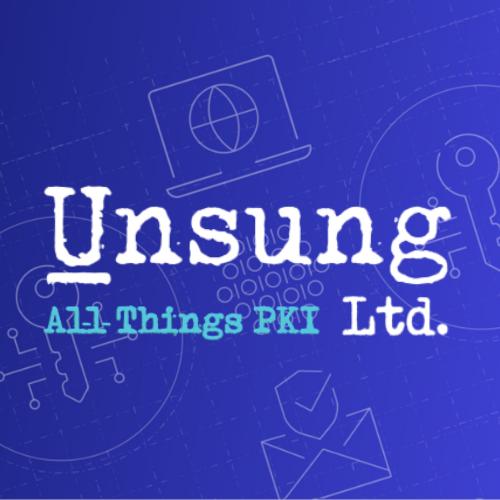PKI Maturity in Transport: A Practical Guide to Advancing CLM Capabilities
Introduction
UK transport organisations are modernising rapidly. Rail signalling, airport operations, digital highways, and public transport platforms all depend on secure identity, encrypted communication, and trusted machine-to-machine interaction. Public Key Infrastructure (PKI) and Certificate Lifecycle Management (CLM) enable that trust.
However, capability varies widely across the sector. Some organisations still track certificates in spreadsheets, while others are moving towards automated, policy-driven certificate operations integrated across cloud, operational technology (OT), and Internet of Things (IoT) systems.
This is where a PKI maturity model becomes valuable. It helps leaders assess their current position, identify risks, and define a realistic path to automation and resilience.
Why PKI Maturity Matters in Transport
Transport environments are often complex, distributed, and safety critical. Certificate mismanagement can result in:
- Outages and service disruption
- Inability to authenticate critical command and control systems
- Delayed incident response due to lack of visibility
- Increased regulatory and audit exposure
- Slower adoption of digital services and connected infrastructure
Maturity enables organisations to manage certificates confidently and at scale.
The Five Levels of PKI and CLM Maturity
This adapted maturity model provides a practical structure for the UK transport context. It describes how organisations evolve from reactive, manual processes to fully automated and crypto-agile trust management.
Level 1: Manual
Certificates are tracked manually, often in spreadsheets or not at all. Little visibility, high outage risk, and person-dependent processes.
Level 2: Fragmented
Some tools are introduced, but visibility is inconsistent across teams and business units. PKI remains reactive.
Level 3: Centralised and Managed
A central certificate inventory exists, providing improved monitoring and alerting. Ownership becomes more defined.
Level 4: Automated
Automated issuance, renewal, revocation, and provisioning are established. PKI integrates with cloud, ITSM, DevOps, and device management platforms.
Level 5: Agile and Resilient
The organisation responds rapidly to cryptographic changes, supports large-scale IoT and multi-vendor ecosystems, and prepares for post-quantum transition.
How to Assess Current PKI Maturity
Transport operators can evaluate their position by considering questions such as:
- Do we have a complete inventory of all certificates across IT, OT, cloud, and edge systems
- Are renewals automated and enforced by policy
- Is monitoring continuous and integrated with operational or security tooling
- Are certificate processes consistent across business units and external partners
- How fast could we transition to new cryptographic standards if required
An assessment can be completed through internal workshops or a structured discovery engagement.
Advancing PKI Maturity: Recommended Priority Actions
The following actions help organisations progress toward stronger PKI and CLM capability:
- Conduct certificate discovery across legacy and modern systems
- Define ownership, roles, and governance for PKI and CLM
- Introduce automated renewal and policy enforcement workflows
- Integrate certificate operations into DevOps, ITSM, network, and identity systems
- Build crypto-agility into roadmap planning, including post-quantum readiness
Progress does not have to be immediate or disruptive. A phased programme is often most effective.
Benefits of Higher PKI Maturity
Transport organisations that progress their maturity levels typically achieve:
- Fewer certificate-related outages and operational incidents
- Faster change cycles for digital and connected infrastructure projects
- Stronger compliance posture and audit readiness
- More efficient use of engineering and security resources
- Increased public and partner confidence in digital services
These outcomes support both day-to-day operations and long-term transformation.
The Role of Unsung Ltd
Unsung Ltd helps transport operators benchmark and improve PKI maturity through:
- Certificate discovery and inventory mapping
- CLM platform selection, design, and implementation
- PKI governance and operating model development
- Automation, DevOps, and integration support
- Crypto-agility and post-quantum transition planning
The aim is to build a resilient and scalable trust foundation that keeps critical services operating.
Conclusion
Secure and reliable digital transport depends on strong PKI and Certificate Lifecycle Management maturity. By assessing where they stand and taking steps toward centralisation and automation, UK transport organisations can reduce outage risk, strengthen cyber resilience, and support ongoing innovation across rail, aviation, highways, and public mobility.
A maturity model provides a clear and achievable route forward.


